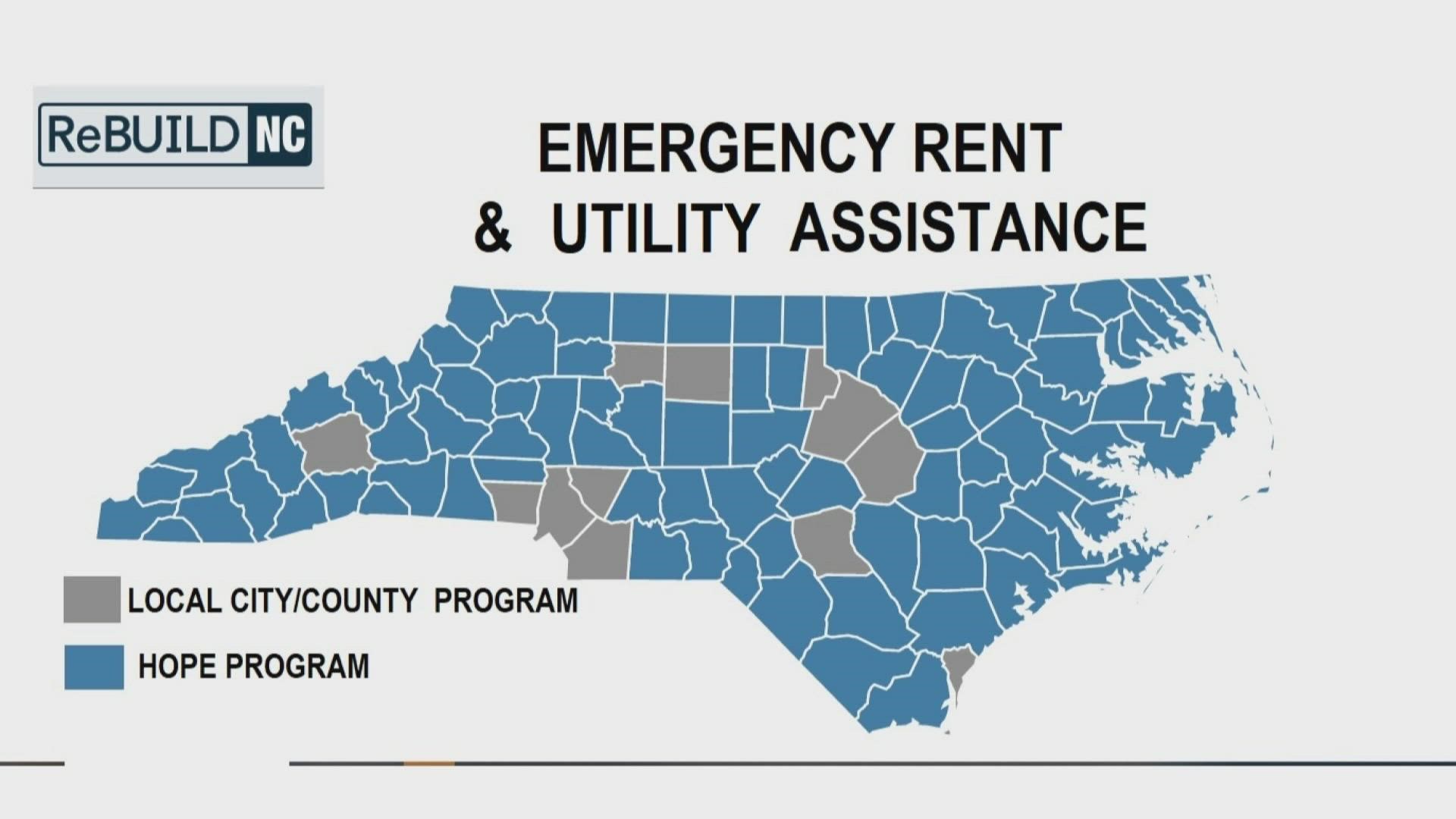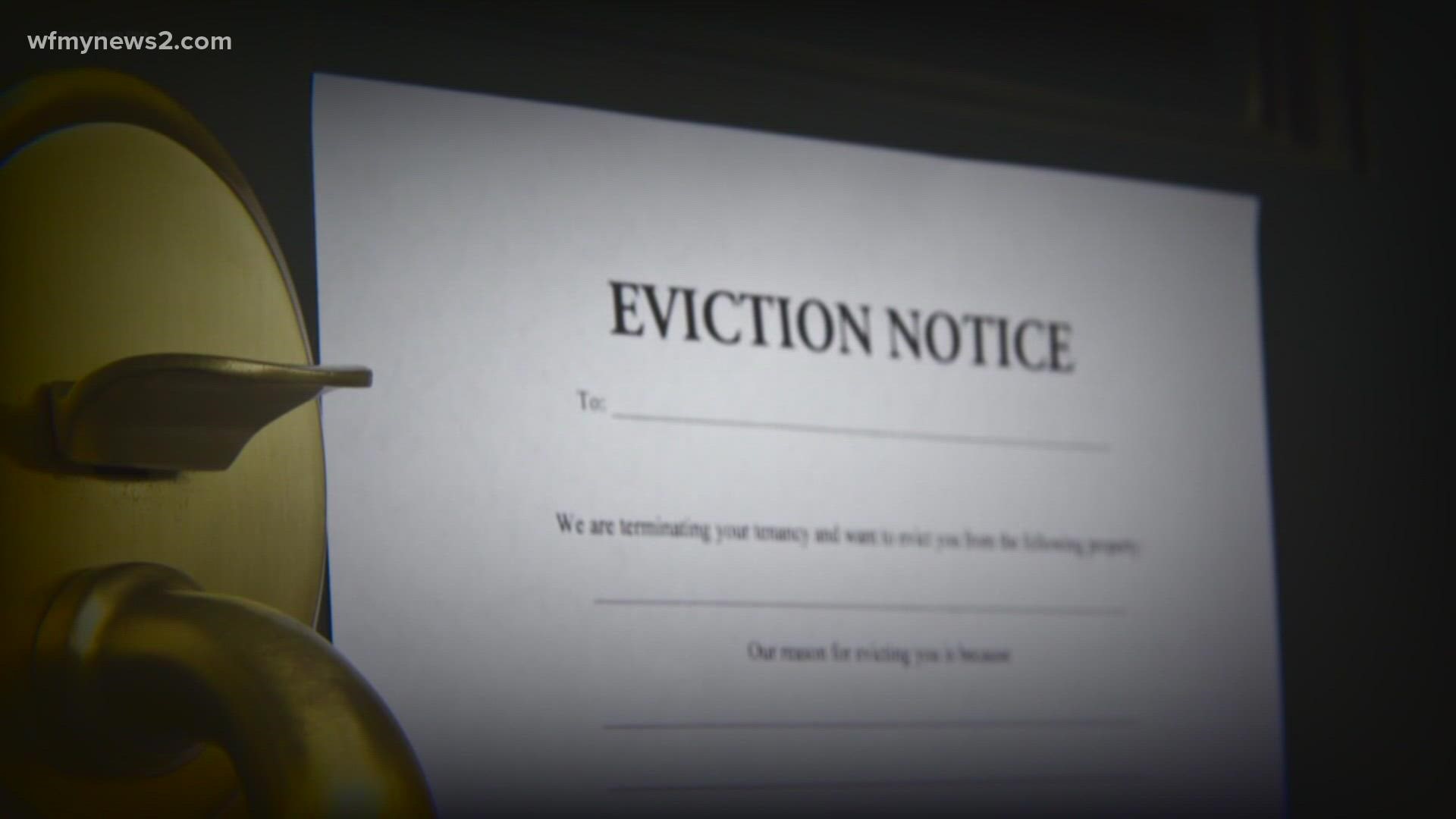GREENSBORO, N.C. — The eviction moratorium was extended temporarily until Oct. 3, 2021, in places with substantial and high levels of COVID-19 transmission, that's about 90% of the country.
The CDC issued the order due to the delta variant spread, the slow rollout of funds to help those renters pay their landlords, and the worry evictions could cause a new spike in cases. To be covered you need a document, the CDC Eviction Declaration form. It’s more than just a signature.
Complete the CDC Declaration Form and present a copy to your landlord via email, USPS mail, or hand delivery.
The Declaration form requires you to meet 7 different criteria:
- They have tried to get government assistance to help pay for rent
- They will earn less than $99,000 as a single person or $198,000 as a couple
- They are unable to pay full rent due to loss of household income
- They are making their best efforts to pay partial payments
- If evicted they would be homeless
- They understand they still owe the rent and may face penalties, late fees, and interest
- Once the moratorium is over the amount they owe in back payments is owed in full
“It only applies for cases of non-payment, it doesn’t apply to every kind of eviction case. And it only applies if the tenant fills out this declaration,” said Holderness.
“There are millions of dollars out there in the community, for people to get help and so this hopefully will give a little bit more time to get that money and get the landlords paid, because we want the landlords to be paid, but we want the tenants to not be homeless,” said Judy Fox, Notre Dame Law School Clinical Professor.
The millions of dollars are set aside to pay rent and utilities for folks impacted by COVID. In NC, it’s all under the RebuildNC umbrella. Look at the map. If your county is in blue, you will apply for the HOPE Program money. If your county is in the grey, you will apply for assistance from your city or county.
FINDING HELP WITH RENT & UTILITY PAYMENTS
No matter where you live, there's a program you can apply for to help to pay rent and utilities. All the payments go directly to the landlord or the utility company.
ERAP assistance can be provided three months at a time, up to 12 months. Applicants will be recertified on a 3-month basis. - The recertification process and requirements are still to be determined. - The household would need to prove that they still meet the income qualifications, are not receiving financial assistance from another program, and that are still experiencing financial hardship due to COVID-19.
GUILFORD COUNTY & GREENSBORO
Call 336-641-3000 or apply online at https://www.guilfordcountync.gov/services/grants/emergency-rental-and-utilities-assistance-grant-program.
City of Greensboro residents can learn more at www.greensboro-nc.gov/COVIDHousingAssistance. You can apply online at https://portal.neighborlysoftware.com/ERAP-GREENSBORONC/Participant.
The Treasury Department is urging those who need help to look for resources at consumerfinance.gov. It's a tool that allows you to find out where in your local community you can go to apply for rental assistance money if you're behind on rent.
HOW THE HOPE PROGRAM HELPS LANDLORDS
HOPE provides low-income renters impacted by the COVID-19 pandemic assistance with rent and utility bills. The program serves 88 counties in North Carolina. The average time from a complete, eligible application to payment direct to the landlord is approximately 14 days. Learn more at www.hope.nc.gov. Landlords may use this form to request that the HOPE Program follows up with their renter to complete an application for assistance. If you need help completing this form, or have multiple tenants you would like the HOPE Program to contact, please contact the HOPE Program Call Center at (888) 927-5467.
When COVID-19 hit, renters were already in a precarious position. According to data from the Aspen Institute, 20.8 million renter households, that's 47.5% of all renter households, were already rental cost-burdened.
Rental Cost Burden is defined as households who pay over 30% of their income towards rent. When the pandemic began, 10.9 million renter households were spending over 50% of their income on rent each month. When you're spending that much on rent, there's little squish room if something like COVID happens.


